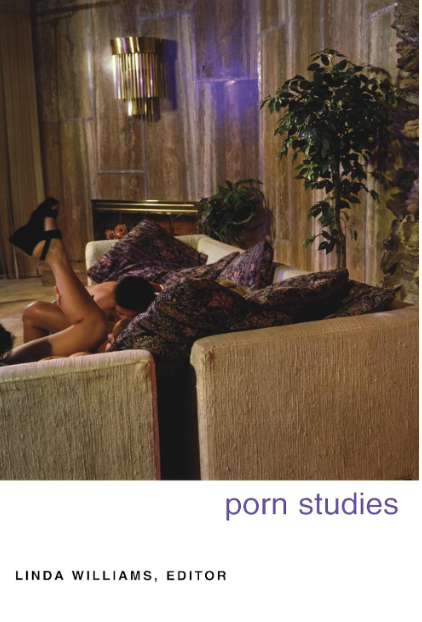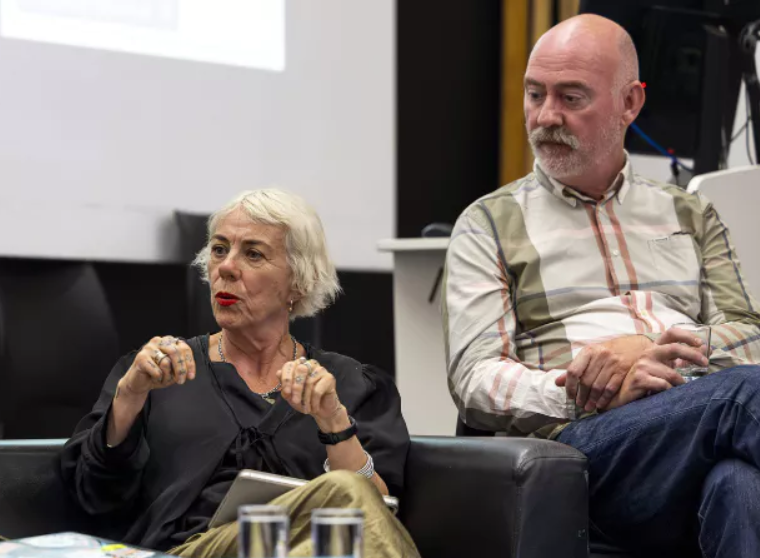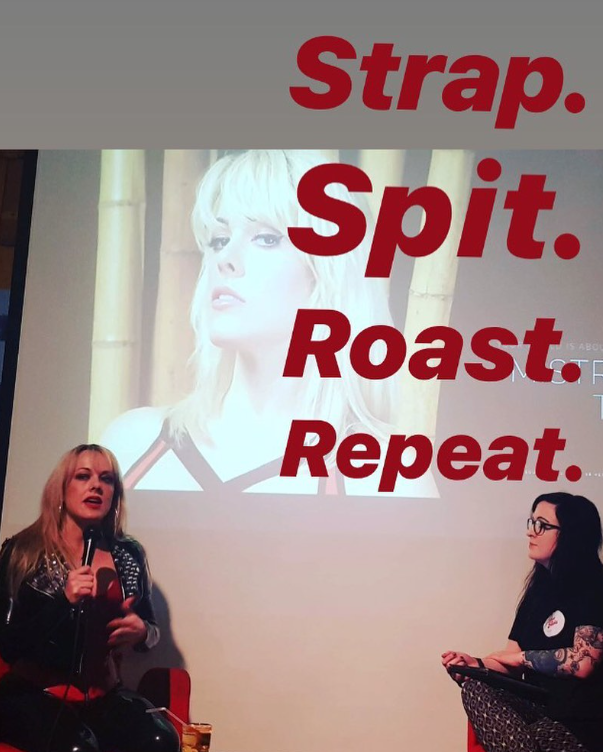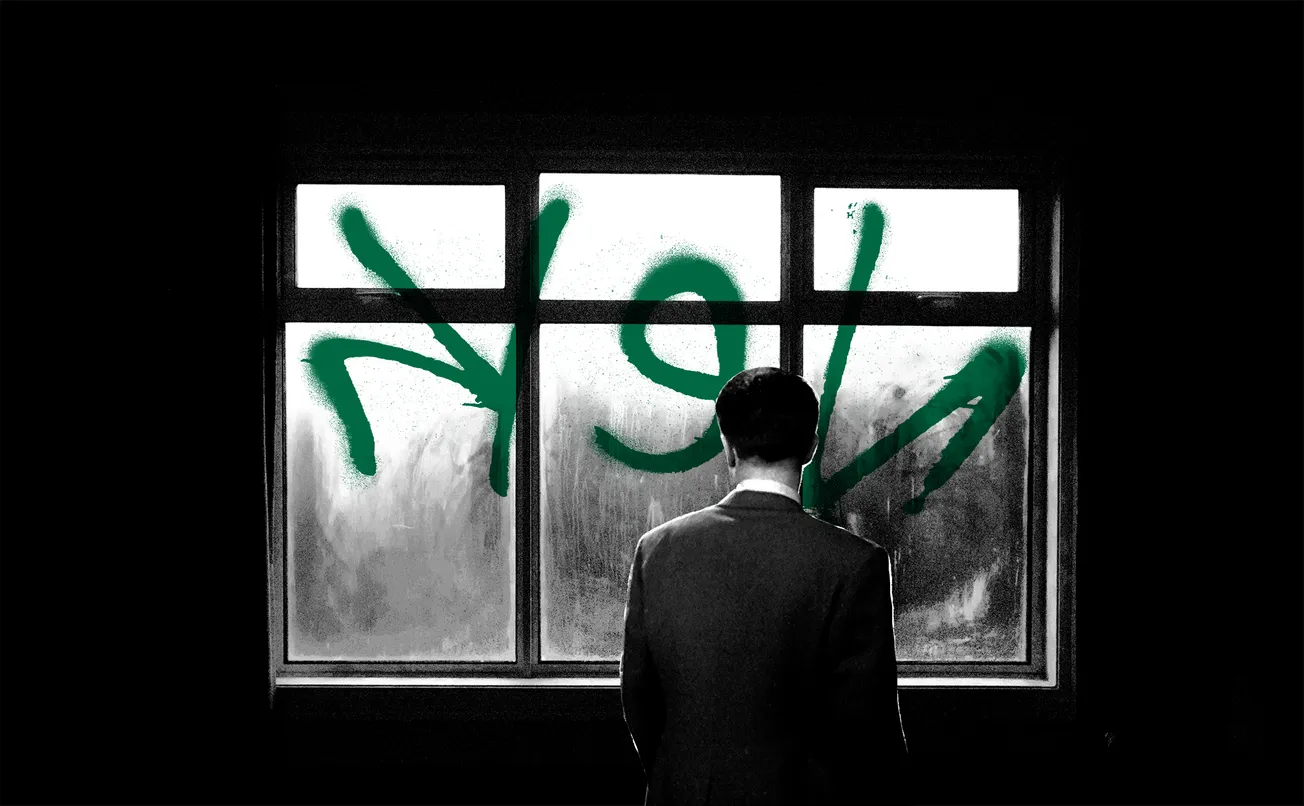Porn! Now we've got your attention, allow us to remind you of our mission to pick up more paying readers. Support our work today by becoming a Dispatch member. It's just £1 a week for the first three months and you can cancel anytime. That's better value for money than your average OnlyFans subscription (so we are told).
One recent Wednesday evening, a senior Mill Media editor was settling into a stiff-backed seat at London’s Bishopsgate Institute, ready for a bit of mid-week stimulation of the mind. On the agenda was a talk about Soho’s illegal mid-century pornographic trade in honour of the launch of a new archive at the Institute. Titled ‘Under the Counter’, the collection featured rare amateur adult films made between 1960 and 1980 in the backrooms of Soho’s bookshops and beyond.
Now, my editor’s no prude. She’d expected a few raunchy clips or stills might be shown; the talk was marked 18+, after all. But it started at 7pm and promised a focus on the people behind the trade and its economics. So she was totally unprepared for when the lights dimmed and the talk’s host, a bouncy Brummie called Dr Oliver Carter, who had collated the Under the Counter archive, introduced “the first of four films”. These turned out to be four, full-length, hardcore pornographic movies, unleashed on an, at least partly, unsuspecting audience.
Carter, it turns out, has built up a sizable collection of illicit, under the counter 20th century porn, the likes of which has never been compiled before in the UK. And he’s done it all in the name of research, as one of a cluster of Birmingham academics who have made a — sometimes overshadowed — city centre university, a leading institution for porn studies in the UK.
When my editor recounted this story, my interest was piqued. Who knew mild-mannered Birmingham City University (BCU) was home to such a spicy discipline? I wanted to understand exactly how the institution had come to be a national leader in adult material. And what does porn studies actually entail?
Dr Carter seems the obvious person to start with. But he’s hard to get hold of, oddly unwilling to discuss his work for a man who’s comfortable screening no-holds barred amateur porn on a weekday evening. When I finally manage to speak to him on the phone, he’s cold. The conversation is awkward. Journalists, he says somewhat sniffily, don’t understand the nature of porn studies or his work. I wonder if this gap in comprehension could be closed somewhat if Carter was amenable to explaining further. But he’s not.
All he will say about his journey to amassing such a vast collection of amateur adult films is that he’s more interested in the economic side and hidden commodities. He “simply went down a rabbit hole on adult material”. Unfortunately for me, he won’t be drawn further and the chat ends before it really gets going.

Thankfully, Carter’s colleagues are more forthcoming. “Institutions are always a little bit nervous about anything to do with sex,” Professor John Mercer tells me over the phone. Officially ‘Professor of Gender and Sexuality’, Mercer, is the daddy of porn studies at BCU, and is largely responsible for the institution's dominance in the field. During his long career, he has published on gay porn, masculinity and RuPaul’s Drag Race. Mercer supervised Carter’s PhD, and has a large cohort of postgraduate students investigating topics such as furries, Chinese erotic photography and gay sex in video games.
Still, even Mercer is hesitant to claim Birmingham is the porn studies hotspot. “It’s hard to be the capital of porn studies,” because the field has always been made up, he says affectionately, of “weird loners” connecting with people in other places.
Mercer, born on the Pheasey council estate near Kingstanding, was the first in his family to go to university and has remained mostly loyal to BCU since studying for his BA at the ex-polytechnic. He joined the teaching staff in 2009, taking a pay cut because the university nurtured working-class academics interested in researching radical and marginal subjects. Some of that research is porn studies, grouped under the banner of ‘cultural studies’. This broader subject area was also pioneered in Birmingham, by Richard Hoggart and Stuart Hall in the 1960s and 1970s, at the University of Birmingham’s Centre for Contemporary Cultural Studies (CCCS).
Hoggart and Hall thought that popular culture, objects outside high-brow literature, classical music and art, was deserving of study. This Birmingham attitude collided with French theory pioneered by figures like Michel Foucault and Sigmund Freud’s interest in human sexuality.
All of these intellectual streams came together across the pond in the late Linda William’s work Hard Core published in 1989 — a book which became foundational to porn studies. Williams sought to get beyond the ‘porn wars’ of the 1970s and 1980s and understand what porn actually is: as a commercial and cultural object.
In the introduction to the book, Williams expresses some ambivalence — like Carter —- about being considered a ‘porn scholar’: “as the first book to deal with the history and textual form of moving-image pornography, Hard Core became, in the absence of any competition, a kind of 'classic' and I became, sometimes to my pleasure and sometimes to my chagrin, a professor of 'porn.'”
As for Mercer, he’s happy to claim the label. His interest in the topic was sparked while completing his degrees in the 1990s when the AIDS crisis was alive and queer theory was emerging. Sex and porn, he tells me, were at the heart of gay culture. Porn was one of the few places gay men could see validation of their desires — a powerful thing when you’re in your mid-to-late 20s and trying to make sense of your body and identity.
Mercer joined BCU’s school of Media in 2009, just as the department was on a drive to expand the scale and size of its research and staff wanted to support challenging projects. “We would be the university that would be the home for research that wouldn’t easily find a home anywhere else,” Mercer tells me. “It was all about being brave and taking risks.” In that rather radical environment, risque research flourished.

As BCU’s reputation as a hub for porn studies grew, funding followed — so too did the media. In the late 2010s, academics Feona Attwood and Clarissa Smith founded and published the Porn Studies journal, drawing balanced coverage from outlets like The Guardian, The Atlantic and The Independent. But sensationalised tabloid journalism has also found porn studies a ripe topic; this year, John Mercer found his name splashed across the pages of the Daily Mail thanks to receiving a £850,000 grant from UK Research and Innovation (UKRI) awarded to his BCU project studying gay porn post-1945.
In the last few years, there’s been a noticeable change in discussions around porn, says Mercer. “Seven or eight years ago I thought the porn debate had been settled. Didn’t think people would get angry about it in 2025, but they do." He believes that society has “spiralled back to the debates of the porn wars of the 1980s and 1990s” which “only understood [porn] as harmful and degrading, that it needs to be banned or stopped.”
Mercer wants BCU’s role as a node in the porn studies universe to introduce uncertainty in a polarised debate: “[everyone is] either pro or anti [porn] it doesn’t feel like there is an inbetween space: where you can be ambivalent.”
A shifting digital landscape has certainly polarised debate around porn, with massive subscription service OnlyFans serving as a key catalyst. The site — which has become predominantly known for its self-employed adult content creators — has fragmented the old pornographic studio system and monopolies like PornHub. Now bedroom entrepreneurs perform escalating sexual feats all in a bid to beat the algorithm. Take the adult stars Bonnie Blue and Lily Phillips (interestingly, both Midlanders from an area of Derbyshire dubbed ‘the OnlyFans triangle’), whose exploits have come to define this trend. Their stunts, like having sex with 1000 men in a single day, garner national headlines and create tabloid sensations.
A mild moral panic about porn seems to be underway; in response to rising concerns about children’s access to adult material, the UK government has started actively enforcing the controversial Online Safety Act. This week, the government also announced that it intends to ban porn depicting choking in the UK.
In many ways it seems like the ‘porn wars’ of the 1970s and 1980s are back. Then, leading feminists such as ‘anti-porn’ Andrea Dworkin and Catharine Mackinnon battled it out against ‘sex-positive’ scholars like Gayle Rubin and Camille Paglia. Indeed, after a notable interregnum of around 15 years, where ‘sex-positive’ attitudes defined millennial feminism, society has returned to the debating table. Now, the consensus is less clear: as digital media accelerates access to porn, many Gen Z women (and men) are turning away from the laissez-faire attitudes of their elders; while others are speeding in the opposite direction.
Despite his large funding award this year, Mercer is concerned about how this polarisation, plus the documented financial crisis facing universities, will impact the likes of porn studies at BCU. “In the current climate, across the sector, while universities are managing to balance books, there are now many questions about whether this kind of research can be supported,” he says.
In previous years, a more unconventional research project that found a home at BCU was ‘Bean Flicks,’ a Birmingham-based festival of ‘intersectional’ pornography mostly featuring porn, produced by and aimed at women, gay men and those interested in kink and BDSM. The festival was launched in 2018 by a group of feminist academics: Dr Gemma Commane, Dr Keeley Abbott, Professor Annalise Weckesser and Gemma Williams. It grew from a previous project, a pop-up women’s sexual health shop called VQ (Vagina Quotient).
I chat with the four of them over the phone. “When I came to BCU I felt like I was on the fringe as a critical psychologist,” Abbott tells me. “I was trying to find my feet in sex-ed research. I met Annalise during a media-training course when we talked about pleasure.” The pair found a “golden thread” between their work, says Abbott, on ideas around women’s pleasure and agency in porn which allowed them to collaborate.

Yet even Birmingham, seemingly so at home with the sexual, produced some kickback against Bean Flicks. During its second run, at Digbeth’s Centrala Gallery, the festival was refused a licence from Birmingham City Council to show one of their flicks: a film depicting two dominatrixes and a man in a gimp suit. “[A] film featuring a threesome between two men and a woman was fine though, weirdly,” says Williams.
The group’s work was rooted in the city; they wanted to subvert Birmingham’s reputation as a city catering to straight male sexuality: “In the 1990s and early 2000s, Birmingham had a reputation for the amount of strip clubs it had in a very concentrated area,” Williams tells me. Initially, they wanted to take over one of those venues and use it for Bean Flicks, she explains. But artsier venues proved more game. “Centrala, in terms of the space and vibe of the venue, was very supportive,” Commane says.
But the times, they are a changing. And as the porn wars start to reheat, this unlikely group of Birmingham scholars have found themselves unwittingly on the front lines.
If someone forwarded you this newsletter, click here to sign up to get quality local journalism in your inbox.








Comments